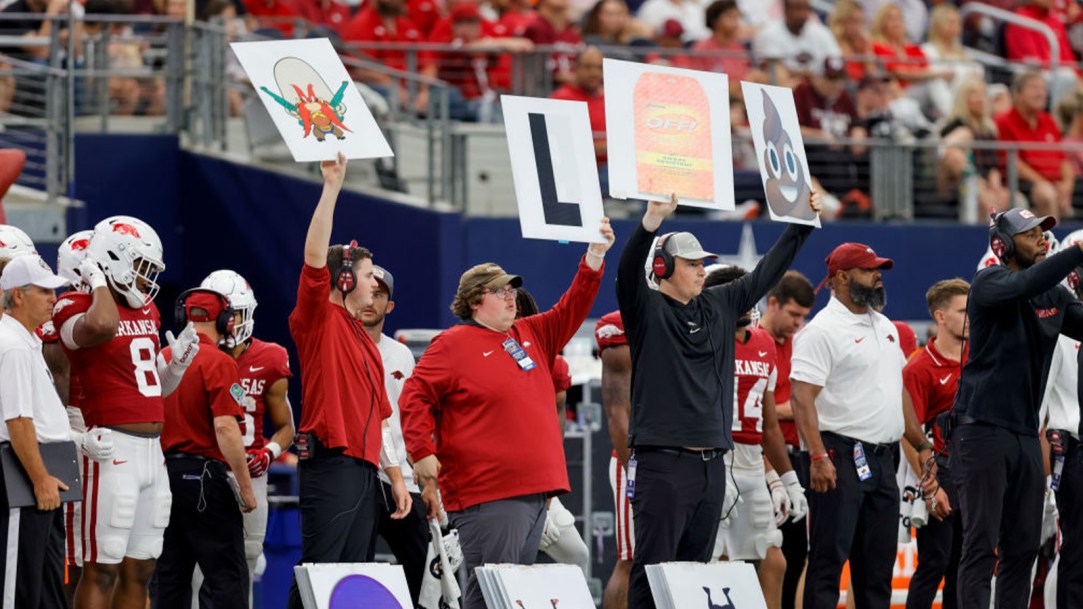
Arkansas defensive coordinator Travis Williams is thrilled that college football finally adopted in-helmet communication to prevent sign-stealing. Last year’s scandal involving Connor Stalions and the Michigan Wolverines actually ended up being a really good thing for the sport in terms of how it operates.
The implementation of this technology was long overdue!
One of the biggest storylines of last season involved the eventual undefeated national champions. Stalions allegedly spearheaded an operation to decipher an opponent’s signals through advanced scouting. He (or someone he hired) would film a team’s sideline to determine when an offense was calling a run or pass, or whether the defense is going to blitz. Things like that.
Per NCAA rule, advanced scouting of a future opponent is explicitly illegal. Stalions and the Wolverines supposedly did so on a frequent basis to get ahead of what their opponent might call during a game.
Stealing signs, on the other hand, is not illegal. In fact, it is something that was rampant!
Teams often spent their entire weeks trying to figure out what was going on on the other side of the field.
You’ll be shocked. During the week, I know offenses all around the country, they’re going to get TV coy, and they’re going to look at the signals. You got just one person, that’s your only job: look at the signals.
— Arkansas DC Travis Williams
Travis Williams knew of two specific instances where his opponent had deciphered his game plan.
I remember we played Louisville, and he was really good. I saw the TV copy, and I could see the whole time he was just like this [writes on notepad], just watching, watching, watching. And then by halftime, they got your signals. I was at UCF. We played them that next year. I got his contact, and I called him. He sent me the whole thing. He said, “This is what we had.” And it was like 80% correct
— Arkansas DC Travis Williams
The constant cat-and-mouse game of sign-stealing forced teams to change signals every week because they were being shared among opponents. Williams, like every coordinator on both sides of the ball, had to mix things up to get ahead of what was coming.
We had to change our signals, because they just pass it around. We played SMU and Rhett Lashlee and them, and they had the same signals. I wasn’t mad that he sent it around. I would have been mad if we didn’t change it.
— Arkansas DC Travis Williams
Stalions and Michigan got out in front of their opponents. They stole signs through in-person scouting ahead of their games. That is illegal. What Williams accused other teams of doing is not. He knows that.
It’s huge and it’s perfectly legal. I know teams right now that have two guys on the field— they just sit here and try to get it. So you gotta have ways of hiding your signals. You always know. When a play happens, you’re going, “Hey, man, they got our signals.” Because it’s like the perfect play. You just know. All over college football. It’s nothing new. It’s not one of those deals where it’s unethical or something like that. They just do it. If you’re crazy enough to keep the same signals, that’s on you.
— Arkansas DC Travis Williams
Fortunately, this is no longer an issue. College football finally got with the times.
Instead of having to relay calls from the coordinator (who is oftentimes in the coaches’ box) to the sideline and to the players through hand signals, the coordinator can talk directly to a designated player. In most instances, it will be the quarterback and the middle linebacker.
There is no middle man. There are no signals to steal!